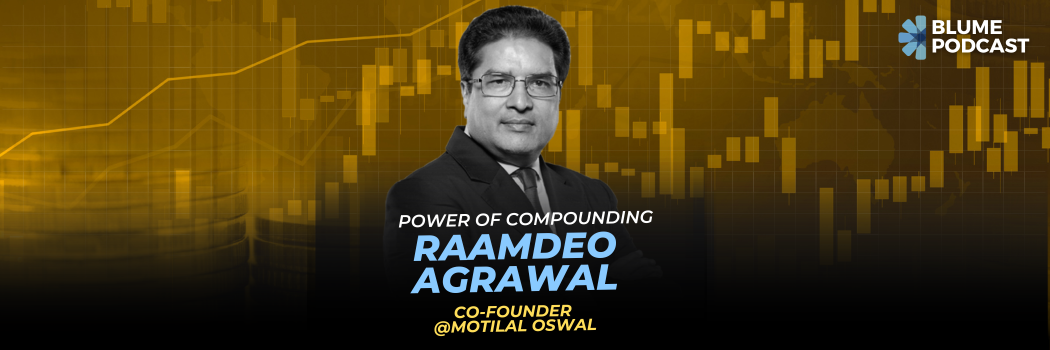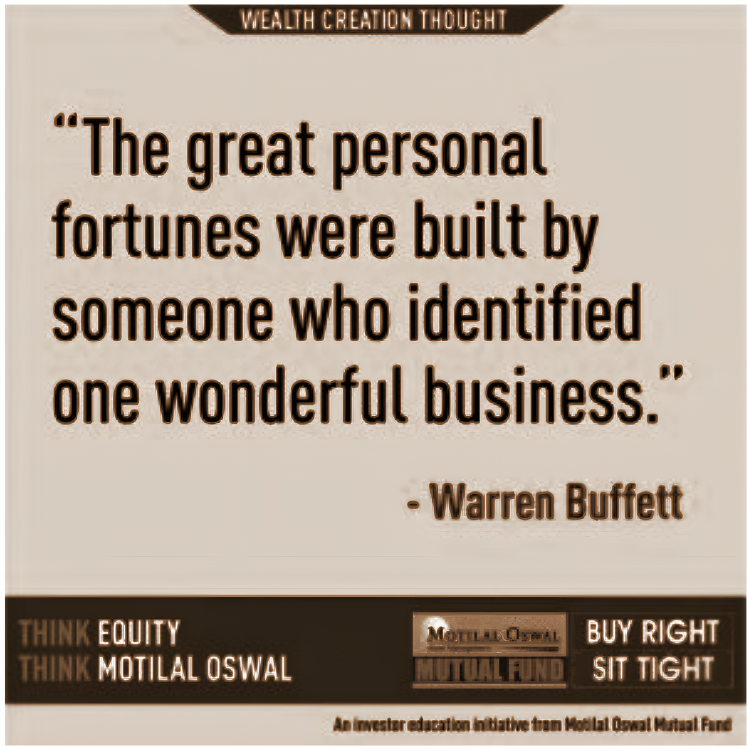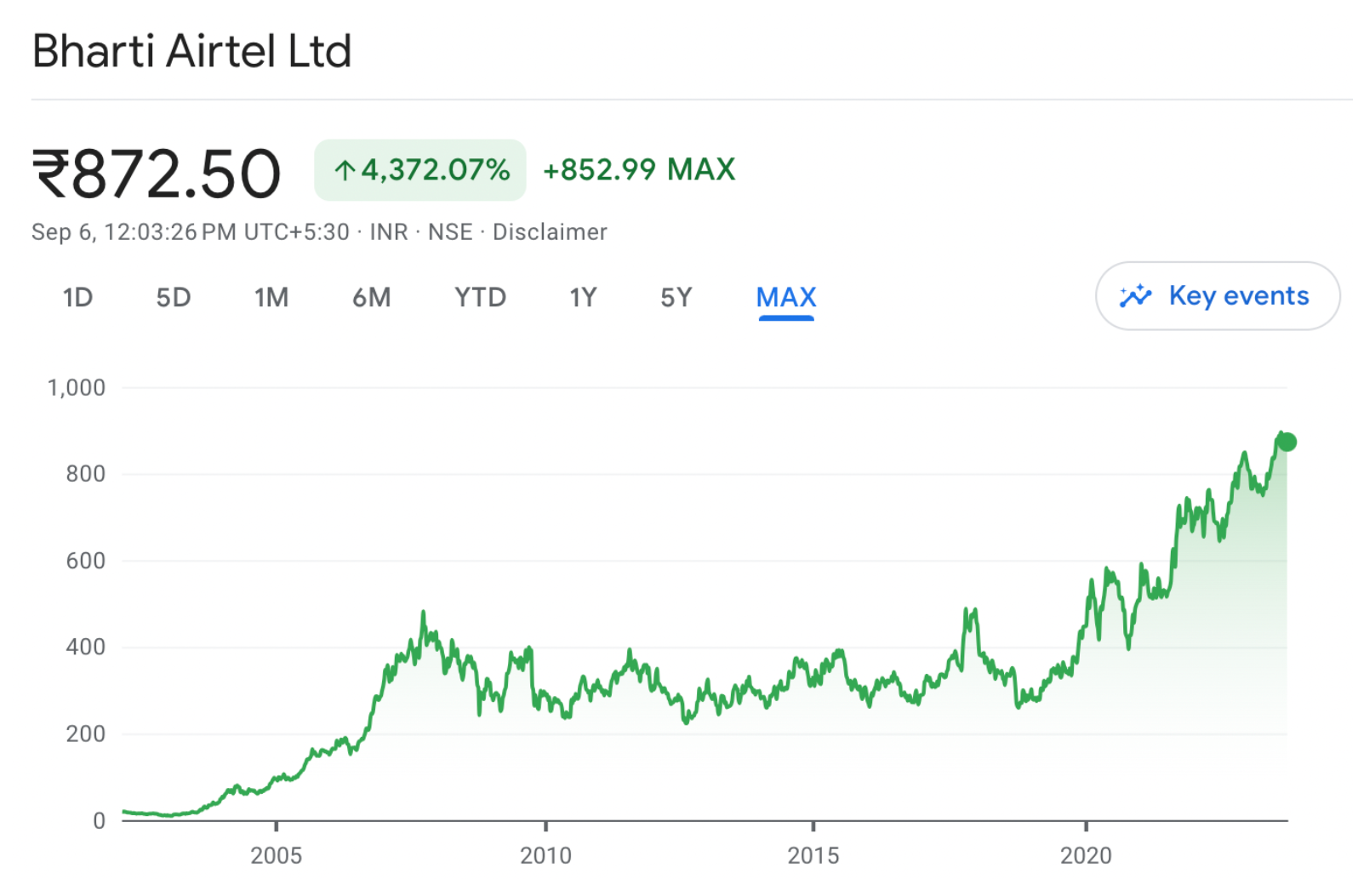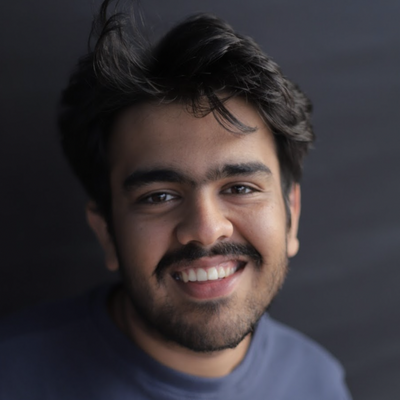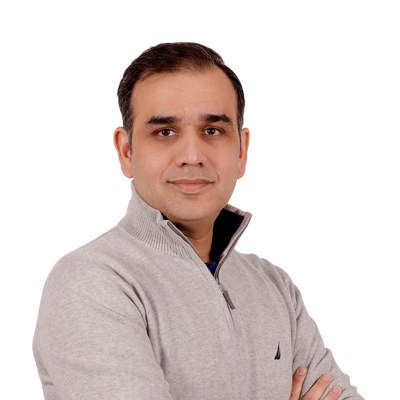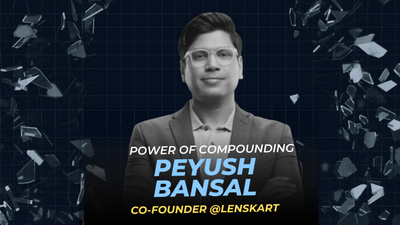“What happens is that entrepreneurship isn’t a straight line. Today, there is a headwind. Tomorrow, there’ll be a tailwind. The real thing is that it’s a chakravyuh.” - Raamdeo Agarwal
Ramdeo Agarwal, the chairman and co-founder of Motilal Oswal, one of India’s most respected financial institutions, isn’t just someone who takes large bets. He takes long ones.
With a market cap of more than $1.6B, Raamdeo Agarwal’s journey at Motilal Oswal exemplifies the long, patient, often frustrating journey of an Indian entrepreneur who wants to build a generational company and not the next cool thing.
Interestingly though, the seeds of compounding and taking the long bets for the right reasons can be seen not just through his professional journey but his personal one too.
Way Back When
The story of Raamdeo Agarwal is the story of a man who defied the constraints of his circumstances to pursue his dreams.
Hailing from a farming family in Raipur, Chhattisgarh, Raamdeo’s journey began as a farmer's son with an unquenchable thirst for knowledge. He moved from a village with no electricity or proper roads to Mumbai, seeking formal education and eventually completing his CA.
Despite facing numerous setbacks, including multiple failures in CA exams (which he attributes to his not-so-legible handwriting), Raamdeo’s indomitable spirit and determination led him to success. His voracious reading habits and fascination with the stock market set the stage for his future endeavors.
“I was a voracious reader of balance sheets. One job opening happened for an equity research role and it was not that common as it is today. So I was the only applicant. I went with a collection of 200 balance sheets to that job interview. They hired me for 3000 bucks per month. I worked for two years, wrote a book and I used to work 10 to 12 hours.”
This job happened to be one of the biggest inflection points of Ramdeo’s life. Around this time, he met a young Motilal Oswal, affectionately known as Moti, at the once-fledgling Lokhandwala neighborhood in the western suburbs of Mumbai.
Impressed by Motilal’s sharp accounting skills (and punctuality), Raamdeo teamed up with him, and the journey of Motilal Oswal Financial Services began. The duo started the company with no capital (he quipped that zero multiplied by zero was still zero) but a wealth of knowledge and a clear goal: to provide brokerage services in a market hungry for them.
But the journey was far from easy.
After accruing a decent amount of brokerage fees in the first few years, they decided to formalize their offerings and apply to the coveted Bombay Stock Exchange for a membership. The only hiccup, though? The membership cost was a whopping 25 lakhs!
“Again, we were back to zero”
It’s only after an unforgettable bull run started by one Harshad Mehta that the Motilal Oswal ball started to roll.
“We made 30 crores, no speculation.”
The power of compounding was slowly starting to show for Raamdeo and Motilal.
Building the Brand
The business was growing. So was their aspiration of building a company that would outlive them.
So far, they’d been running the firm as a mom-and-pop business. But they realized that the only way to make a lasting impact was to take the corporate route. While the revenue machinery was chugging along, Ramdeo and Motilal Oswal had a stark realization: nobody really knew who they were.
Action was taken soon, and they hired a marketing manager.
“Myself and Moti used to sit half day with him. Once or twice in a week. He used to say - You have to learn this. You have to learn that. We didn't know anything about marketing.”
Soon they became one of advertising and branding maverick Jagdeep Kapoor’s earliest clients. The three struck a chord and began working on ‘positioning’ the brand.
“I said, we are stockbrokers.
Then I said, we are research-based stockbrokers.
So then he said, We are world-class research brokers. And that became our positioning.”
Now came the hard task of being seen by potential customers. Advertising in newspapers was expensive. So they started with a small one-inch by one-inch column called ‘Wealth Creation Thoughts’ in the Economic Times, where they carried Warren Buffet’s quotes, just below the stock index, every Monday morning. It was Raamdeo’s responsibility to rephrase Buffet’s quotes into 13 words or less to fit into that small box. Today their iconic brand messaging can be seen across airports and business news channels.
But in all their editorial and brand-building efforts, there was clearly one person who was their biggest inspiration.
The Buffet Effect
It’s no secret that Warren Buffet has had a profound impact on the way Ramdeo makes decisions at work.
Perhaps the most important nuggets of wisdom that Ramdeo caught on to were: a) Price is what you pay for, and value is what you get b) You buy what you understand.
“What do you understand? If you don't understand something, how the hell can you say that someone’s business economics for the next 20 years is going to be good? Is the management good? How do you price it? So understanding is the key. And it is not only about investing but every walk of life. You must understand. As you're successful, you start getting bigger and bigger things, more complicated things.”
Such was the impact of this thought that Raamdeo devised his own framework, QGLP for evaluating investments.
“Q is quality of business, quality of management, G is for growth, and L for longevity. So G and L, I think it's more silent there, but they practice it. And then there is P for price.”
This seemingly simple mantra helped them invest and make big returns on companies like Bharti Airtel, even when their peers in the stock market doubted their ability to book profits on a stock that was seeing such massive losses in its early issue.
“So long as my framework QGLP gives me points to a doubler in next three years and beyond. Double in three years, 3x in five years and 10x in 10 years. That kind of 25% compounded possibility is visible to me, that longevity and growth trajectory is visible to me. Then I want to buy.“
Life and entrepreneurship are seldom this linear, though. As he rightly states, it’s a chakravyuh.
To win, you have to focus
It’s easy to lose sight while you’re in this whirlwind. But Raamdeo’s unfailable ability to stick out the storm is to always show up and deliver.
Even if the weather is cloudy. Or sunny, for that matter.
“We never bothered with stock prices. Even today, I don't know what my stock price is. Because I know I have nothing to do with the stock price. I have to deliver what we are good at. Not the stock price, but the net worth or earnings and earnings growth and ROE and those kinds of things. Our business is that we have to deliver.”
And this core belief of showing up and not caring too much about the ‘now what?’ of it all is not just limited to the stock market and valuations. But his outlook towards life and the Indian economy too.
In the long term, compounding always pulls through.
The Belief in India’s Compounding.
“See, the power of compounding is like this huge machine.
Despite all the handicaps, India is one country, which has in the last 75 years survived and grown to become 10% below poverty line. It took us 75 years to come to reach three and a half trillion GDP, it will take just, I would think about eight years to reach seven trillion - double from here.”
In a conversation with Karthik Reddy, partner and co-founder, Blume Ventures, for the second season of the Blume Podcast, Raamdeo explained how the compounded increase in India’s total GDP has already started bearing fruit on an individual level: the rise of discretionary income, which he claims has the potential to 10X as India keeps growing.
One advice that Buffett always says is “Don't bet against America.” I’m telling you, “Don't bet against India.”
India’s story has compounded in the past, and more excitingly, it’s going to remain compounded in the future.
Advice to Young Entrepreneurs
“They must understand the stock market. Stock market is a compounding and discounting machine. So it's a very simple place. And you get liquidity from your stocks. But the very fact that you're an entrepreneur and the purpose of entrepreneurship should not be to get listed and get a valuation. And that I'm very clear about.”
He feels that tech companies that are deep in losses and funded by VC money can be misguided and takes pride in being bootstrapped from Day 0, with a sharp focus on profitability and value creation. And this core focus shouldn’t be something that’s lost in the fear of the future. But focusing on the problems at hand.
“So don't bother about how to build when you are at 10 million. Don't bother about how to go from 1 billion to 2 billion. That's not your subject. That's for the 10th guys. You are in the first standard. So, running those billion dollar, trillion dollar companies will be far more complicated, but it is much easier to manage those companies than the small ones."
Startup founders are a resilient bunch. Though Raamdeo has handsomely surpassed his dreams of building a ‘corporate,’ his DNA remains as ambitious and future-seeking as ever, something he hopes that the builders of today don’t lose as they scale.
“We are still a start-up, I’m telling you.”
Ramdeo Agarwal’s sprawling story is a testament to the impact of passion, resilience, and compounding.
A true believer in the India story for more than 40 years now, his journey from failing subjects in Raipur, going on scooter rides with Motilal Oswal in Andheri, to now creating one of India’s most respectable and iconic financial brands serves as a beacon of inspiration for all entrepreneurs and founders.
He took a long bet.
And the returns look just about fine.
This was an edited excerpt from the second episode of the second season of Blume’s Podcast. Listen to the full episode by clicking here.
Carve Outs:
- 2006 Berkshire Hathaway Letter
- QLGP Book
- Share price ups and downs of Airtel



